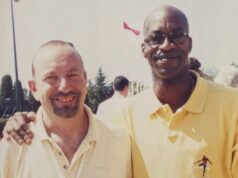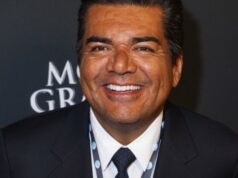With Paul Schienberg, Ph.D.
Mbarak Hussein was born and raised in Kenya. Some of his successes as a long distance runner include Second place in the Rock and Roll Marathon (1999), fifth (2001) and fourth (2002) in Boston Marathons, American’s Finest city half marathon champion in San Diego (2002), Seoul International marathon champion (2002) and Honolulu marathon champion (2000,2001,2002). He resides in Albuquerque, New Mexico.
Psyched: I want to congratulate you on winning the marathon in Honolulu for the third straight time. It’s a great achievement.
Mbarak Hussein: Thank you.
P: We appreciate that Coach GP* has helped arrange this interview with you. How did you meet? How does he work with you?
MH: He’s been a good friend of mine for a long time. I met him in Santa Cruz – a local race there. He was my host family. He helped me with my strength training through speed work.
P: Tell me more about that training.
MH: Specifically, it is a long sustained workout – 4 to 6 miles – alternating pace each lap by one minute per mile (15 seconds a lap) between 5k race pace and marathon pace. He is a great motivator. You can be down and he gets you into the right frame of mind. GP taught me some great stretches as well. Stretching is such an important part of running especially as you get older.
P: Long distance running requires many hours of training. How do keep motivated?
MH: I am one of the oldest long distance runners – 37 years old now. As I get older, it is easier to get out there because I know there is only a limited amount of time I will be able to run competitively. It gives me more focus, discipline and motivation.
P: Are there any mental approaches you use on the day of the race to help you focus?
MH: I’ve learned to be very patient – compose myself. The longevity in the sport has helped me. I get nervous but I don’t panic. Focus on the race. Know who is in the race. Focus on the last race you did. I look at the previous race and how I did. I see me being good at the last race and it calms me down. Most the other racers are a focus. I know who is racing. I know what they do. I keep up with how the other racers are doing. I know what kind of shape they are in. I evaluate all the racers. It makes me comfortable. It help me focus and calm down. How they run a race is important for me to know. I review the entire race in my head. I make a rough idea of what I am going to do in each part of the race. I figure out when to make my move. But, the other racers can change their strategy. So, you have to adjust.
P: There seems like a psychological war going on between the runners.
MH: I don’t play psychologist that much. I think who looks good.
P: Do you remember a race where you didn’t feel right? And what did you do?
MH: Yes. I look back at the training. I remind myself that I trained well enough. So, I can do this. I look at the work outs. I have a visual image of myself running well. When I’m in training, I imagine I am in a big race – not in a training session. This motivates me to take the training seriously.
P: Kenyans are known as great long distance runners. How come?
MH: Big difference is I look at what I can do. Kenyans want it more. Other runners don’t want it as much. The commitment is greater. We struggle more in Kenya. It is a harder life. In other places they have it easier.
P: Have you ever sustained an injury?
MH: Yes.
P: How do you deal with it mentally?
MH: We overlook the injury. I don’t focus on the pain. I run through it. I endure more. We get away from the excuses – because of our background. We say we want to be a runner. So, we give it all. Don’t let anything get in the way. We feel the pain sometimes but we also block it out. The mental approach, when in training, is very important. It is the most important part. I have lost a couple of races because of it. One time I lost a race because I thought I had someone beat – I was a better runner – I quit mentally when he came back after falling behind. He wanted the race more than I did. I didn’t see myself winning the race. I learned a lesson from that one.
P: We appreciate the time and focus you gave this interview. I am sure our readers will get a great deal out of it.
MH: I hope so.
*AUTHOR’S NOTE: Coach GP is co-founder of RunningBuzz.com and is the author of the upcoming book Run Tall, Run Easy: The Ultimate Guide to Better Running Mechanics. For Advanced VIP notice, contact Runtallruneasy@aol.com













